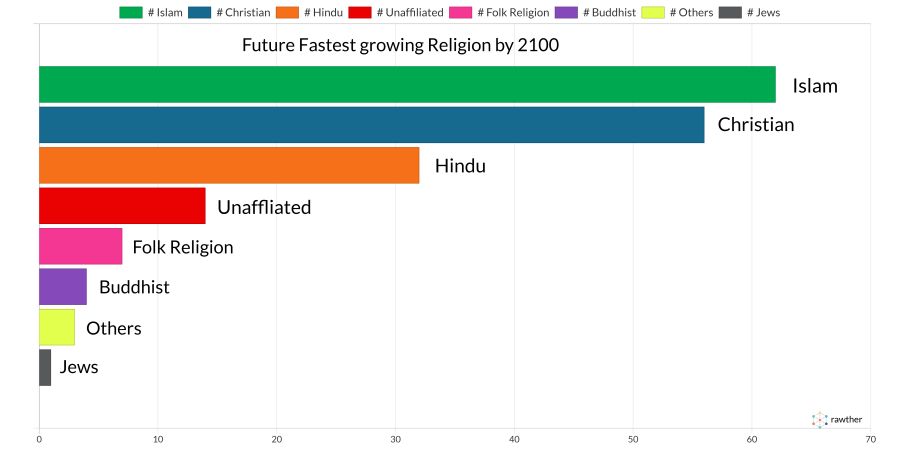

Islam is one of the fastest growing religions in the world. According to recent estimates, there are over 1.8 billion Muslims worldwide, making it the second largest religion after Christianity. This growth can be attributed to several factors, including population growth, conversions, and immigration.
One of the primary reasons for the rapid growth of Islam is population growth. Muslims have high birth rates, which contributes to the growth of the religion. This population growth is particularly pronounced in countries with high levels of poverty and limited access to family planning and healthcare services.
Another factor contributing to the growth of Islam is conversions. While conversion to Islam has always been a part of its history, the religion has seen a recent surge in conversions, particularly in countries with high levels of religious freedom. This growth can be attributed to a combination of factors, including increased exposure to Islamic teachings and practices, a desire for a more meaningful and fulfilling life, and the appeal of Islam's message of equality and justice.
Immigration also plays a role in the growth of Islam. In recent years, there has been a significant increase in the number of Muslims migrating to other countries, particularly in Europe and North America. This has led to the establishment of new Muslim communities in these regions, which has further contributed to the growth of the religion.
Political and economic factors can play a significant role in the growth of Islam. In some cases, political instability and lack of opportunities for young people can lead them to turn towards Islam as a source of hope and stability.
For example, in countries where the government is ineffective in providing for the basic needs of its citizens, such as education, healthcare, and economic opportunities, people may turn to religious institutions for support. Mosques and Islamic organizations can provide education, healthcare, and other social services that the government is unable to provide. This can lead to greater support for Islam and Islamic institutions, which can in turn lead to more conversions to Islam.
In conclusion, Islam is growing rapidly due to a combination of population growth, conversions, and immigration. While this growth has brought challenges, such as increased religious tensions and conflict, it has also brought many benefits, including increased diversity and cultural exchange. As the world continues to evolve, it is important to recognize and understand the growth of Islam and its impact on our world.


